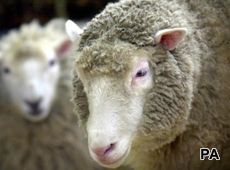The controversial issue of human cloning for organ donation was brought to the fore recently as the highly-anticipated film Never Let Me Go, whose main characters are clones in a world where the cloning of human beings for their organs is the norm, opened the 54th British Film Institute (BFI) London Film Festival, which runs until October 28th. To judge opinion on the issue, we asked our panellists for their thoughts on the cloning of human beings and/or their organs. The force of the comments received show that the issue is clearly a sensitive topic for some.
No to cloning
Most respondents were against the idea of cloning humans.
- Religion was cited as a reason by some panellists for their opposition to cloning, one wrote, ‘as a Christian I strongly disagree with cloning’
- While several argued that it ‘interfered too much with Mother Nature’.
- The general view of those against the practice was that cloning is ‘the thin end of the wedge towards an unregulated use of cloning which would spiral out of hand’.
- However, one panellist highlighted the dilemma that comes from simultaneously fearing the implications of cloning while still remaining open to its possible medical possibilities. ‘I am terrified of cloning,’ they said. ‘It could undermine the ethics of society and could lead to a sub-breed of super-humans and sub-humans bred just for their organs. But,’ they continued, ‘if my daughter were dying, I would do whatever I could to support her survival. That’s the dilemma.’ Clone organs not humans
- In fact, while the idea of cloning human beings was met with an almost universal ‘no’ by our respondents, many said that they would support the cloning of human organs for medical purposes. ‘I am not happy about cloning human beings but cloning organs is fine’ was a sentiment echoed by many.
- Most supported cloning organs because it ‘is a good idea which would benefit society’ as ‘it would be medically very useful’.
- One panellist directly mentioned the moral responsibility of scientists, saying, ‘I think that scientists shouldn’t do something just because they can – [they] need to consider the moral implications of any cloning’.
 Back in the real world, the UK’s Human Fertilisation and Embryology Act 2008 places severe regulations on human embryos created by cloning or on ‘human-admixed’ embryos (embryos made from a combination of human and animal genetic material). ‘Dolly’ is the UK’s most famous cloning experiment: a sheep who survived for six years following her birth on July 5th 1996. There have been no certified human clones created…yet.
Back in the real world, the UK’s Human Fertilisation and Embryology Act 2008 places severe regulations on human embryos created by cloning or on ‘human-admixed’ embryos (embryos made from a combination of human and animal genetic material). ‘Dolly’ is the UK’s most famous cloning experiment: a sheep who survived for six years following her birth on July 5th 1996. There have been no certified human clones created…yet.




